- Home
- Peter Lerangis
Antarctica Page 12
Antarctica Read online
Page 12
“Well, you can’t recover my share,” Philip said. “It’s lost.”
“We’ll leave that matter to the magistrate,” Mudge shot back. “’E’ll ’ave some creative way to draw it out of your inheritance — or your wages, presumin’ you ever earn any.”
At the sudden sound of a scuffle aboard the Nobadeer, the officers looked upward. On deck, two rough-looking whalers were leading Nigel to Captain Coffin.
“’Ands off!” Nigel shouted. “I ’ave a perfickly good exclamation!”
“We found ’im ’idin’ among the blubber barrels,” one of the whalers said.
“Stowin’ away — on a whalin’ ship?” Coffin said. “Love ye the hunt so much?”
“My credentials is impregnable, I assure you,” Nigel said. “Whales ’n’ me, we go way back. I can sling me a harpool like the best of ’em— I mean it, Coffing, take me wif you — please!”
The policemen were grinning. “Well, well … what have we here?” murmured Pickering. “If it isn’t Arnold Waxflatter.”
“Arnold?” Philip repeated.
“Waxflatter?”Colin said.
“Goes under many names,” Lamston said. “Wanted for shopliftin’, bad credit, postal fraud, impersonatin’ a sailor, impersonatin’ just about anybody ’cept a law-abidin’ cit’zen— not to mention cheatin’ old widows and widowers by offerin’ to invest their money and then disappearin’ with it.”
“That’s our Nigel,” Robert said.
“You,” Mudge said to Philip, “is small potatoes compared to ’im.”
Nigel — or Arnold — tried to hide his face as the whalers forced him down the gangplank. “Don’t fink you’ll get away wif this! I know my rights — this ship is neutrical jurisdinction, an’ under international code I claim armistice!”
“Amnesty,” Captain Barth corrected him.
“That, too!” Nigel said.
Lamston took Nigel roughly by the arm. “So, the Nobadeer goes out for a whale and comes back with a weasel.”
“It’s all a misunderstanding!” Nigel insisted. “I’m as innocent as the nap on a baby’s cheek!”
“Save it for the courtroom,” Lamston said.
Captain Barth stepped forward. “I can’t speak as to the innocence or guilt of this man, but I will gladly testify as to the strength of his character.”
Nigel’s mouth dropped open. “You will?”
“He bagged a few whalefish single ’anded, eh?” Constable Pickering said.
“We are not whalers, sir,” Jack said. “We were Antarctic explorers.”
Mudge let out a guffaw. “And I’m the Archbishop of York.”
“The Cap’n radioed us all about you,” Lamston said. “Tol’ us you was lost on a sloop somewhere off Cape ’orn.”
“What?” Jack said.
“That’s not true!” Colin exclaimed.
“It ain’t?” Pickering said. “I suppose you reached the South Pole, too.”
Mudge made a mockingly sad face. “Awww, ’at’ll be a great disappointment to Captain Robert Falcon Scott. Too late to tell ’im now. ’E’s somewhere between South Africa and New Zealand. Left ’ere on the first of June.”
“Tell them, Captain Coffin!” Colin said.
Captain Coffin stepped roughly down the gangplank. “The boy has an active imagination. His team’s too embarrassed to admit the truth, which is wha’ I told you. It’s human nature for Yankee rascals. Such as these ain’t fit to eat off the shoes of a hero like Robert Scott. God save the King! Now where’s that reward money ye promised, for me pickin’ up yer bloody criminals ’n’ deliverin’ ’em to port?”
“You liar!” Andrew shouted.
“Coffin, you’ll pay for this,” Jack said.
“’S long’s I collects me due first,” Coffin replied.
The dock erupted with noise, every man of the Mystery shouting and advancing on Coffin.
With a grand sweep of his arm, Captain Coffin drew a polished sword. “Avast, ye rogues!”
Constable Mudge rolled his eyes. “My, if we ain’t got Long John Silver in our midst.”
“This is 1910, sir,” Lamston announced. “Buckling swash in public is a criminal offense, punishable to the full extent of the law.”
In the midst of the tumult, a gleaming, well-upholstered automobile purred to a stop just before the dock. The driver jumped out crisply and opened the passenger door.
Horace Putney swiveled his girth, grimacing as he surveyed the dock, and stepped out.
“Putney!” Father shouted. “Just in time.”
“Good day, Uncle Horace, so much to tell you!” Philip called out. “But first, please inform these benighted souls where we have been!”
Putney strolled forward, ignoring Philip. He wore a full-length mink coat, and it swayed like a gentle brown sea over his exceedingly broad beam. A fur hat of the Russian style sat like a nest on his head, and he puffed contentedly on a fat cigar. “Just where have you been?”
“In Antarctica, exactly as planned, Mr. Putney,” Colin said.
“These scurvy bags o’ bones says they reached the South Pole,” Mudge exclaimed.
“We did not!” Andrew said. “But we tried.”
“Mr. Putney financed the building of our barquentine, the Mystery,” Colin said. “He sent supplies to us in Argentina. He’ll vouch for us.”
Putney raised his eyebrow. “Well, that’s a mighty fine yarn, young fella. But I build houses, not boats. I see that my nephew picked his American friends true to form.” He stole a wink at the policemen. “Carry on. I’ll be along to the magistrate’s to clear up this matter.”
As the policemen escorted Philip away, he shouted, “Traitor!” over his shoulder. Captain Coffin followed behind, his flowing cape and clattering scabbard clearing the street.
Father was red. When he spoke, his words hissed through clenched teeth. “Why, Putney? Even for you this is despicable.”
“I know why,” Colin said, turning on Putney. “You don’t want to seem like a loser, do you? If we didn’t reach the South Pole, then you’re just another failure. You don’t have the guts to admit the truth.”
“What is the truth?” Putney asked.
“That you financed one of the bravest, most courageous expeditions ever made by Americans,” Andrew replied.
“You didn’t reach the Pole, did you?”
“No,” Jack said. “We couldn’t — we knew enough to cut our losses and turn back. But we reached closer than any American has. And we survived. That’s a victory in itself.”
“Jack, the world isn’t looking for closer. They’re looking for results, and now they have Robert Falcon Scott — a bona fide national hero — to hang their hopes on. You could have beaten him, but you didn’t. Time moves on. I took a gamble on you and lost; my money’s invested in Scott now.” Putney shrugged. “I’m just doing what you did. Cutting my losses and moving on.”
“We’ll go to all the newspapers,” Colin vowed. “We’ll tell them what happened — and how you turned your back on us.”
“Be my guests,” Putney said. “See how many are interested, when they have a real race for the South Pole going on.”
“Putney, you’ll tell the truth someday,” Jack said. “I won’t stop hounding you until you do.”
Putney chuckled. “Well, you’d be wise to book passage on two rather elaborate voyages, then. Tomorrow I leave on an around-the-world cruise. I arrive back in London in approximately a year and a half.”
“We’ll be right here, waiting,” Jack replied.
“You’ll wait a long time,” Putney said, turning away. “Because shortly thereafter I’ll be steaming back to New York on the most expensive and magnificent ocean liner in history.”
The chauffeur opened the automobile door, and Putney stepped in, muttering impatiently, “To the magistrate at once! I’m running late.”
As the motor started up again, Putney leaned out the window and waved.
“You’ll find us in New Yor
k, Putney!” Colin shouted. “At the dock upon your return!”
“Very well,” Putney called out, pulling away in a cloud of cigar smoke. “Look for the Titanic.”
The Aftermath
A Postscript (1910 to the Present)
Historical Notes on the Crew and the Legend
THE STORY OF THE Mystery did not end in London.
All his life, Andrew Winslow corresponded with crew members and kept news clippings on those who led public lives. From these, and Andrew’s unpublished journals, we know the following:
Captain Elias Barth continued commanding ships until he died, elderly and happy, in the port of Bermuda.
Kosta Kontonikolaos worked as a circus animal trainer/performer, and, like a modern-day Homer, told the Mystery’s saga to all who’d listen. Almost everyone understood it to be fiction, but a small cult of people, mostly kids, believed him — including Kosta’s children and grandchildren, of whom there were many.
George Oppenheim began a slow recovery from a little-understood condition we now know as post-traumatic stress disorder. As a psychiatric social worker, he detected and treated the condition in countless soldiers returning from the First and Second World Wars. Luis Rivera worked as a longshoreman on the notoriously corrupt and violent New York City docks — and in the 1950s, on the verge of retirement, he helped lead the fight for unionization. Robert, as Robert Makela, prosperous importer of goods from Africa, marched on Selma with his four children in 1963 at age seventy-eight. He walked all the way.
Peter Mansfield, after years of sailing, published an archive of sea chanteys, now out of print. David Ruskey enjoyed great acclaim for his nature photography but always asserted his best work was left in a desolate Antarctic cove. Upon earning a doctorate of divinity, Reverend Jacques Petard led a thriving Lutheran parish in Chicago. Pete Hayes became a sixth-grade math teacher. Meteorologist Harv Talmadge helped the U.S. Weather Bureau recover its reputation a decade after it mispredicted the disastrous hurricane in Galveston, Texas. Starting with a Hoboken saloon, Tim O’Malley and Rick Stimson eventually established four popular Chez Tim et Richard restaurants in New Jersey — “Out-of-This-World Food, Down-to-Earth Prices.” Horst Flummerfelt, foreseeing the mass popularity of the automobile, opened a booming garage and auto-parts store. Chris Ruppenthal and Bruce Cranston moved to Los Angeles and found success in the burgeoning talking-film industry. Wyman Kennedy worked his way from carpenter to building contractor, finally retiring to a cottage he built with his children on Squam Lake, New Hampshire. Dr. Montfort lived up to his promise of lifetime free medical care to crewmates. One patient was Vincent Lombardo, who, after retiring as a sailor, had a brief career in musical comedy, appearing most notably in Mabel of the High Seas on Broadway.
Most of the sailors saw action in the First World War, which was then called the Great War. Documents show that James Windham was killed in Arras, France, in 1917, and Mike Sanders died on the Western Front a year later.
Philip Westfall was released from police custody after Horace Putney’s intervention. Upon receiving his inheritance at age eighteen, he was billed the entire amount of the stolen money, with interest, which he finally finished repaying at age thirty. He moved to a small but tastefully appointed cottage in the Cotswolds with his German shepherd, Schmetterling, and was never heard from again.
Arnold Waxflatter, also known as Nigel, was convicted on all counts and served a full ten-year sentence, repeatedly denied early release because of poor behavior. He settled in New York City, made a fortune in the stock market bull run of the 1920s, lost it all in the Crash of 1929, and was last seen selling health elixirs door-to-door in Arizona under the name Chet Farkas.
Information on other crew members is still being sought from friends and relatives.
Jack Winslow never sailed again. He enrolled at Columbia University at age forty-five and finished the undergraduate degree he’d begun at Harvard. He became friends with Lawrence “Chappy” Walden after a chance encounter while on vacation in Maine. Jack finally returned Walden’s good luck gesture (with a piece of wood and grommeted rope from the Mystery, which Colin had saved) and eventually the two went into business, establishing the Northeastern Geological Survey Institute.
When he died at age eighty-three, in 1950, he considered himself a lucky man indeed.
For Colin and Andrew Douglas Winslow, the Mystery expedition was just the first of many adventures in a new century.
Colin was twenty-three when he served in the war. He lost the use of one arm because of an injury suffered while saving the life of a fellow soldier. Afterward, he stayed close to his father and brother in New York City, marrying and raising four burly sons, all of whom learned how to sail on Long Island Sound by the age of six.
Andrew followed his father’s footsteps to Harvard but graduated with high honors. He was decorated for valor in the war for his work against German submarine attacks. Settling in Greenwich Village, he married, had a daughter, and lived a comfortably bohemian life as the author of a series of popular sea adventures. Aurora Australis, a thinly veiled account of the voyage of the Mystery, was his best-seller.
When the Titanic sank in 1912, Horace Putney jumped aboard a lifeboat, disguised as a woman. He perished while attempting to climb onto the rescue ship, slipping and falling back into the sea. He had never learned to swim.
He took the truth about the Mystery down with him.
The public did not pay much attention to the story about the ill-fated voyage. Ruskey searched the Nobadeer for his vest-pocket camera and film, but they were gone. Later Nigel admitted to hiding the equipment for himself among the blubber. Taking it for trash, the Nobadeer crew later dumped it in the sea somewhere off the coast of Martha’s Vineyard. No photos survived.
In the absence of physical evidence, Jack Winslow sought out the shipbuilder, Samuel Breen, only to find that Breen had died of a heart attack shortly after the Mystery set sail. Breen’s records were haphazard. They showed plans for the Mystery, but they gave Buenos Aires as its destination. Horace Putney still owed him more than half the money for the ship.
Breen’s estate was never able to collect it.
The dockworkers in Buenos Aires confirmed the ship’s arrival and departure, describing the crew as inept and badly organized. They fully believed that the ship could have been scuttled or capsized. For years after the expedition, the Mystery’s sailors tried to reveal their stories to the American press — and for a while a few reporters championed their cause. But after the shocking death of Robert Scott’s party, Roald Amundsen’s sensational and controversial conquering of the South Pole, followed by the amazing (and documented) survival sagas of Ernest Shackleton and Douglas Mawson, the press simply lost interest.
For years, the men of the Mystery met at convivial annual meetings that became less and less frequent. The last was held in Mansfield’s home in Wayland, Massachusetts, in 1941, just before the United States entered the Second World War.
The plight of the Mystery remains a legend no more. But somewhere in this country a few Winslow great-grandchildren know the whole story.
And nothing stays secret forever.
Peter Lerangis
New York, New York
January 30, 2000
A Biography of Peter Lerangis
Peter Lerangis (b. 1955) is a bestselling author of young adult fiction; his novels have sold more than four million copies worldwide. Born in Brooklyn, New York, Lerangis began writing in elementary school, inventing stories during math class—after finishing the problems, he claims. His first piece of published writing was an anonymous humor article for the April Fools’ Day edition of his high school newspaper. Seeing the other students laughing in the corridors as they read it, planted the idea in his head that he could be a writer. After high school he attended Harvard University, where he majored in biochemistry and sang in an a cappella group, the Harvard Krokodiloes. Intending to go on to law school, Lerangis took a job as a paralegal post-graduat
ion. But after a summer job as a singing waiter, he changed his path and became a musical theater actor.
Lerangis found theatrical work on Broadway, appearing in They’re Playing Our Song, and he toured the country in such shows as Cabaret, West Side Story, and Fiddler on the Roof, acting alongside theatrical greats such as Jack Lemmon, John Lithgow, Jane Powell, John Raitt, and Victor Garber. During these years, Lerangis met his future wife, Tina deVaron, and began editing fiction, a job that would eventually lead him to writing novels of his own.
Lerangis got his start writing novelizations under the penname A. L. Singer, as well as installments of long-running series, such as the Hardy Boys and the Baby-sitters Club. He eventually began writing under his own name with 1994’s The Yearbook and Driver’s Dead, two high-school horror novels that are part of the Point Horror series of young-adult thrillers.
In 1998, Lerangis debuted Watchers, a six-novel sci-fi series, which won Children’s Choice and Quick Picks for Reluctant Readers awards. The first book in the Abracadabra series, Poof! Rabbits Everywhere (2002), introduced Max, an aspiring magician who struggles to keep a lid on the supernatural happenings at his school. Lerangis followed that eight-book series with the immensely popular Spy X novels, about a pair of twins drawn into international espionage.
The stand-alone novel Smiler’s Bones (2005), based on the true story of an Eskimo brought to New York City in 1897, won critical acclaim and a number of awards. Most recently, Lerangis has collaborated with a group of high-profile children’s authors on Scholastic’s the 39 Clues, a sprawling ten-novel adventure series.
At times, Lerangis’s life has been as thrilling as one of his stories. He has run a marathon, rock-climbed during an earthquake, gone on-stage as a last-minute replacement for Broadway legend Alan Jay Lerner, and visited Russia as part of a literary delegation that included First Lady Laura Bush. He lives with his family in New York City, not far from Central Park.

 The Orphan
The Orphan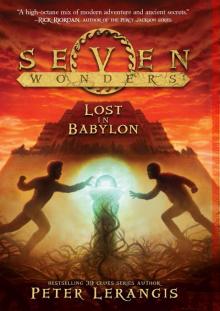 Lost in Babylon
Lost in Babylon Last Stop
Last Stop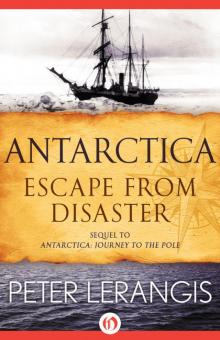 Antarctica Escape from Disaster
Antarctica Escape from Disaster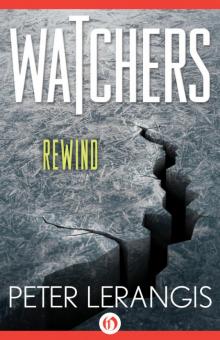 Rewind
Rewind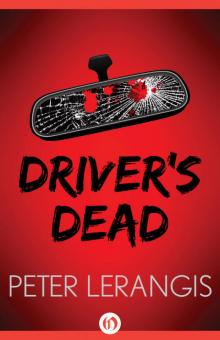 Driver's Dead
Driver's Dead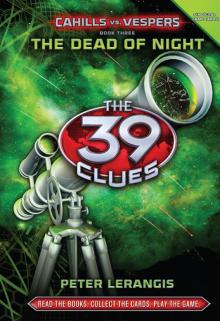 The Dead of Night
The Dead of Night The Promise
The Promise The Yearbook
The Yearbook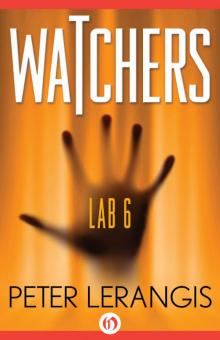 Lab 6
Lab 6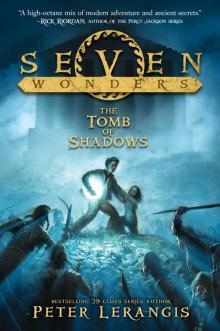 The Tomb of Shadows
The Tomb of Shadows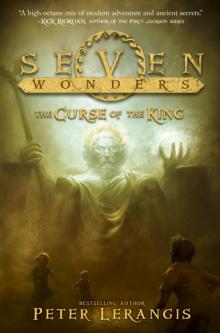 The Curse of the King
The Curse of the King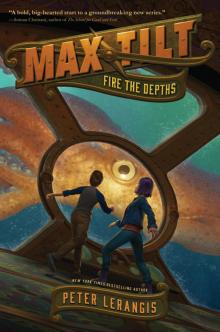 Max Tilt: Fire the Depths
Max Tilt: Fire the Depths The Fall Musical
The Fall Musical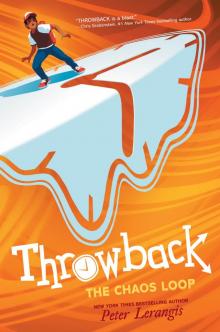 The Chaos Loop
The Chaos Loop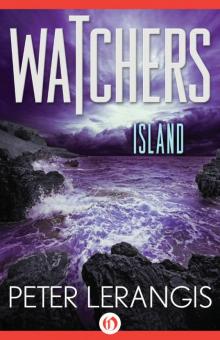 Island
Island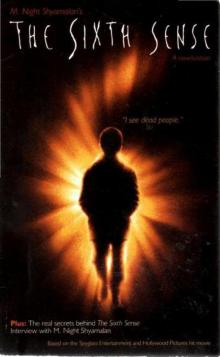 The Sixth Sense
The Sixth Sense Wtf
Wtf War
War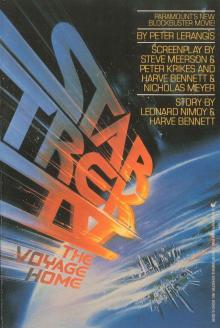 Star Trek IV, the Voyage Home
Star Trek IV, the Voyage Home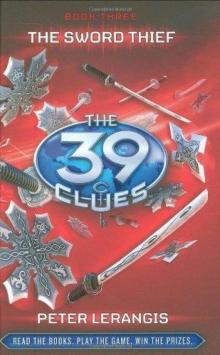 The Sword Thief
The Sword Thief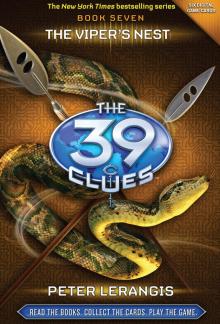 The Viper's Nest
The Viper's Nest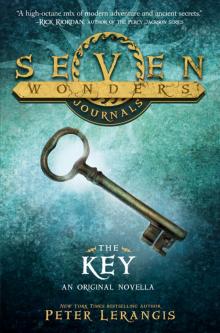 The Select
The Select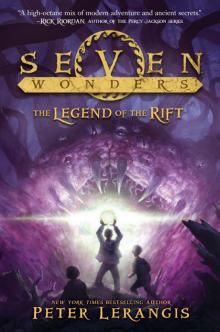 The Legend of the Rift
The Legend of the Rift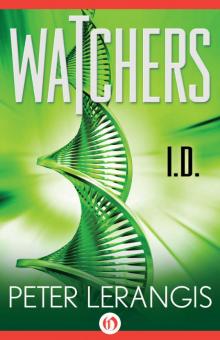 I.D.
I.D. The Sword Thief - 39 Clues 03
The Sword Thief - 39 Clues 03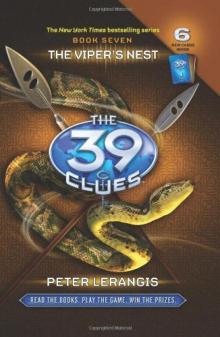 The 39 Clues Book 7: The Viper's Nest
The 39 Clues Book 7: The Viper's Nest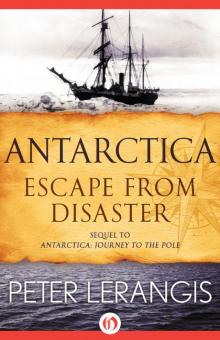 Antarctica
Antarctica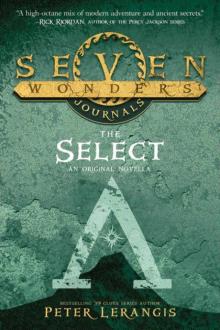 Seven Wonders Journals: The Select
Seven Wonders Journals: The Select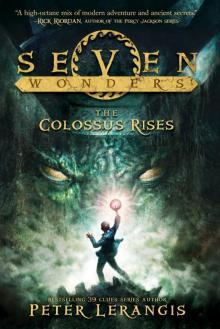 Seven Wonders Book 1: The Colossus Rises
Seven Wonders Book 1: The Colossus Rises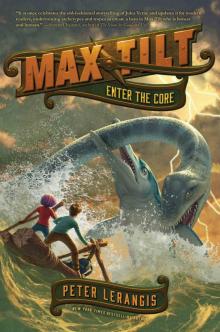 Enter the Core
Enter the Core![39 Clues _ Cahills vs. Vespers [03] The Dead of Night Read online](http://i1.bookreadfree.com/i1/04/02/39_clues_cahills_vs_vespers_03_the_dead_of_night_preview.jpg) 39 Clues _ Cahills vs. Vespers [03] The Dead of Night
39 Clues _ Cahills vs. Vespers [03] The Dead of Night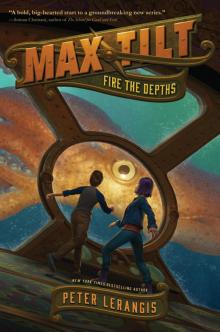 Fire the Depths
Fire the Depths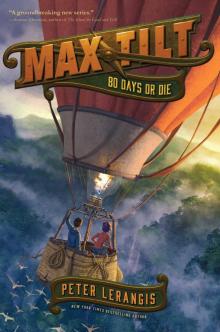 80 Days or Die
80 Days or Die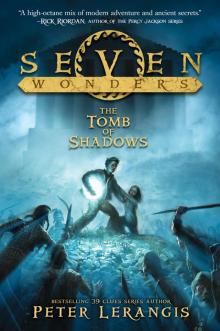 Seven Wonders Book 3
Seven Wonders Book 3